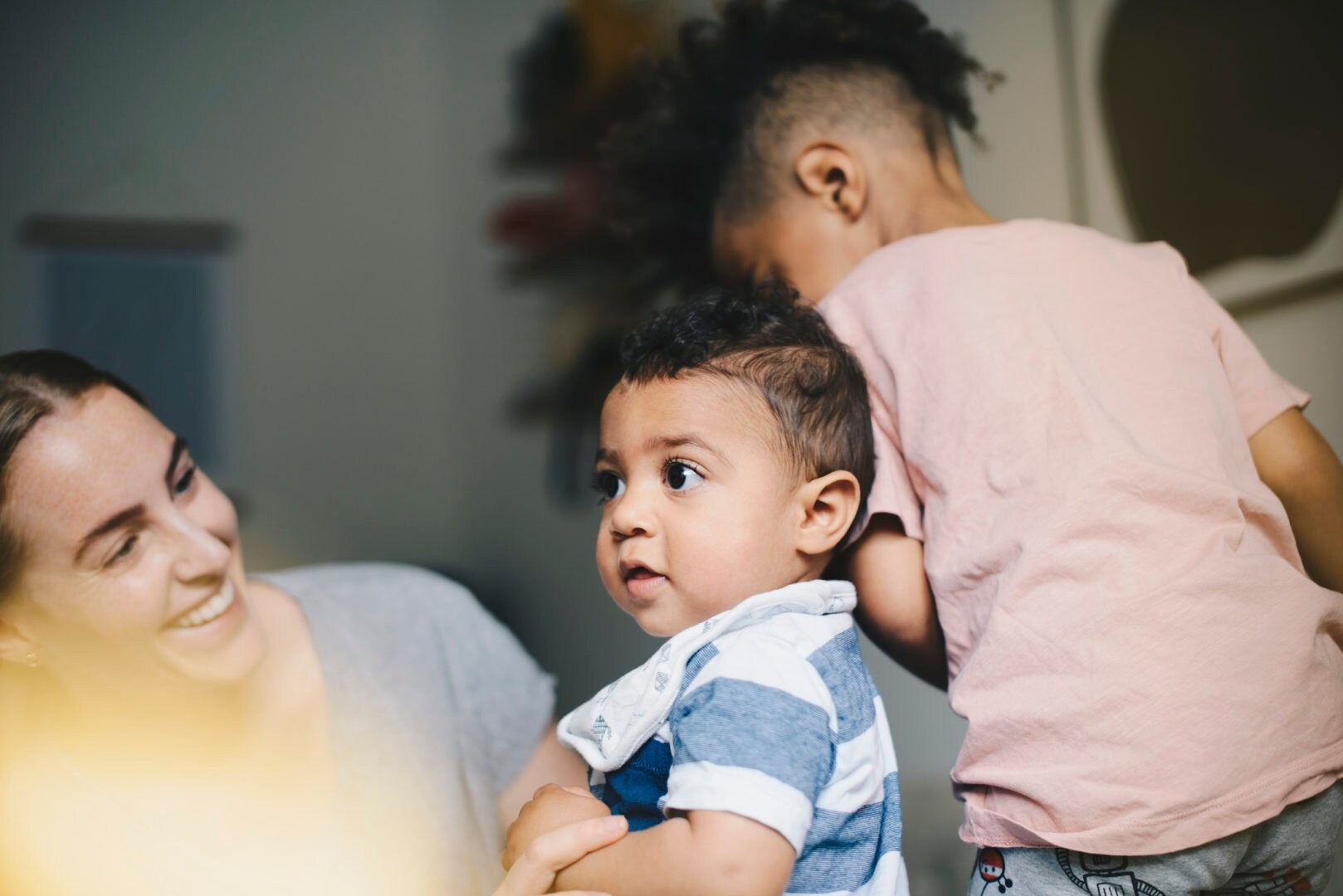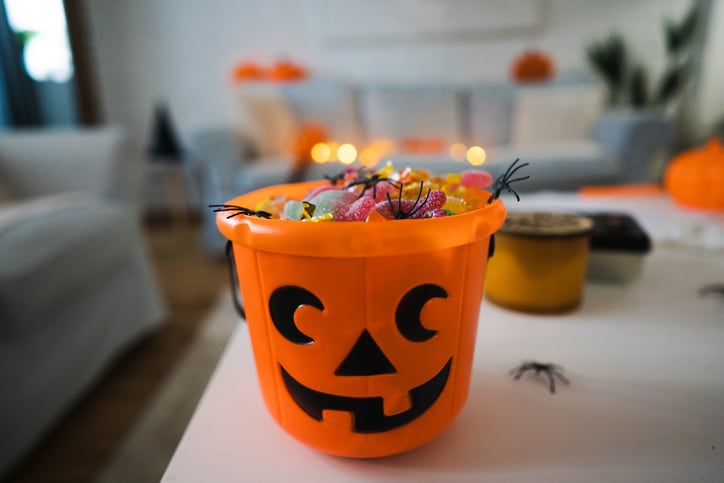In the wake of the coronavirus crisis, parents are juggling everything from remote work to homeschooling their kids to keeping up with the news while trying to care for their own physical and mental health. But what about parents who also happen to be health care providers contending with patient care in this daunting moment? Dr. Sarah Post, a primary care doctor from Boston, Massachusetts is a mom of a 4-year-old and 2-year-old who has had to balance the demands of her work and her family life.
Why it’s so important for healthcare providers to stay healthy
Although Post doesn’t work in a hospital, she says her job has been completely transformed by the pandemic. “We’re all struggling to figure out how to manage the avalanche of questions and concerns and how to take care of all our patients with their usual medical issues,” Post explains. “We’re trying to create a whole new way to practice medicine.” That means significantly limiting how many patients she’s seeing in person, practicing telemedicine and having to make tough decisions about which patients get priority attention.
This high-tension moment for the world is undoubtedly a significant one for all medical professionals who are needed more now than ever. For that reason, Post realized she had to do everything in her power to protect her family’s health. “I don’t want my kids to get sick, and I don’t want to get sick,” she says. “No one wants to get sick, but I really can’t be out of work. They need me. If I get sick, I’d have to be out of work for an absolute minimum of 48 hours to get tested. And if I was to get COVID-19, I’d have to have time to completely recover; we’re looking at two weeks or more.”
The bottom line for Post: “The healthcare workforce has been really affected, and that makes it hard to take care of all the patients, and so we are trying to keep the kids from giving to us.”
What child care looks like for Post’s family now
Therefore, in an aggressive attempt to protect their family’s wellness, Post and her husband created a special contract for her nanny who is now caring for not only Post’s 2-year-old but their 4-year-old whose school has been canceled for the time-being.
Typically, Post’s nanny will take the toddler for playdates, to the library and to play spaces. “She’s out and about with him all day, all the time and when my daughter is home sick or home from school, like she is now, she’ll take them both,” explains Post. “But now, because of the concern about community spread of this virus, I am reasonably worried they could be exposed to it doing pretty much anything. So, we’re taking really strong precautions to prevent them from being exposed to it. That means they can’t do much anymore.”
In an effort to adhere to social distancing measures, Post’s nanny and the kids are limited to activities in the house, the family’s backyard or around the neighborhood.
To that end, the nanny contract details activities they can do, as well as times when the children’s hands must be washed (“before going outside and after coming back inside, before and after eating (including snacks), after using potty and after being caught with hands in noses or mouths”), which parks they can go to and how trips need to be followed by application of hand sanitizer.
Why it’s so important to offer paid sick leave
Post’s coronavirus-specific nanny contract also notes that the nanny should keep Post and her husband updated on any symptoms of illness (cough, sore throat, fever) after which they can “make a determination of whether it’s OK to come to work.”
If the nanny (or Post or her husband, for that matter) get sick, she’ll be given paid time off. “We want to make her feel really comfortable with not coming to work if she’s sick,” explains Post. “So we said, if you legitimately need three weeks of sick days — mild infections can last a long time — we’ll figure something out. In the past, we’ve given her a week of sick time, but now we said specifically while this is going on, take as much as you need within reason. We want to make it possible for her to do what she knows is the right thing to do.”
Post hopes that all families who hire professional caregivers will take these factors into consideration — in general and now, in particular. “It’s terrible to work when you’re sick, and from a public health perspective, it’s disastrous, and especially right now with a virus that’s so contagious and dangerous,” she notes. “You want to create every possible incentive for your caregiver to be able to stay home or in an environment where they are not going to be infecting other people.”
Post points out that under typical circumstances, or if paid sick leave isn’t an option, a nanny who is feeling “a little under the weather” might go to work in order not to risk losing out on pay — or, in a worst-case scenario, her job entirely. Thus, failing to offer a caregiver reassurance around paid sick days is a “terrible way” for household employers to treat people who are taking care of their kids, says Post.
What household employers need to know about managing a nanny through this crisis
Given her experience, Post offers the following pointers for other parents attempting to juggle their family and their caregiver’s well-being.
“Having a nanny is another variable that is introducing a potential for infection,” says Post. “So, you’ll want to consider what you can do, within reason, to minimize the risk to everybody else in your family and life.”
Go over the basic guidance from the CDC
This means talking about subjects like social distancing, hand-washing, sterilizing high-touch items like phones and taking all the reasonable precautions noted by the CDC, says Post.
Get specific about kids’ hygiene
“Kids are gross, and they’re not able to follow the rules of hygiene at all, especially little kids,” jokes Post. But in all seriousness, she emphasizes the need to come up with a system for boosting their hygienic practices (think frequent hand-washing and teaching them to cough into their elbows) and minimizing their risk of exposure.
Have an open dialogue about the kids’ mental health
“For older kids, I can imagine this is frightening,” says Post, whose 4-year-old is already asking when she can see her friends and when school will be back in session. “Nannies who are with the kids all day will be dealing with their fears and the bewildering aspects of this,” notes Post.
For that reason, she encourages parents to check in with the nanny about the children’s mental and emotional state to be sure the caregiver hasn’t noticed concerning remarks or behavior.
Do what you can
Post believes that the moves people are making to protect their families and communities, like social distancing and upping their hygiene, will make a difference and serve as a “massive relief to people working in healthcare.”
Ultimately, all that anybody can do in this situation is their best, Post notes. “Try to take control of the things that you have any power over,” she says. “And if people follow recommended measures and can keep their kids and families from getting sick, it really does matter even if it just feels like a drop in the bucket.”






